Send us a Message
- Destinations
- Tours
- By Destinations
- By Themes
- Suggested Combination
- Duration
- About Us
- Reviews
Thailand offers several visa options depending on your nationality and the purpose of your visit. Travelers can enter visa-free for short stays under the Visa Exemption Program—usually 30 days for most countries (extendable for 30 more days at a local immigration office). For longer stays, you can apply for a Tourist Visa (TR), which allows 60 days in Thailand, extendable for 30 more days. Other visa types include Non-Immigrant Visas (for work, study, retirement, or family reasons) and the Thailand Elite Visa for long-term stays. Travelers are advised to check the latest visa rules before their trip, as regulations may change.
The Thailand Digital Arrival Card (TDAC) has become mandatory starting May 1st, 2025, for all international arrivals.
All non-Thai nationals entering Thailand by air, land, or sea must complete the TDAC online before or upon arrival.
Travelers can apply for the TDAC online at: https://tdac.immigration.go.th/arrival-card/#/home
The e-form must be completed within 3 days before arrival, or on arrival at the airport (however, we strongly recommend filling it in advance to avoid waiting at the airport).
After submitting the form, you will receive a QR code. Please present this QR code at the immigration counter upon entry to Thailand.
As in most countries, vaccination certificates are not required for people unless coming from or passing through a designated "contaminated" area. Some border areas of Thailand are malarial and appropriate precautions should be taken if visiting there. Bangkok, major cities, and resorts have excellent medical facilities0222and most hotels have doctors on 24-hour call. Thailand has a total of 455 private hospitals—121 in Bangkok, 165 in the Central region and East Coast, 62 in the North, 57 in the Northeast, and 50 in the South. Visitors can be assured of round-the-clock international standard medical services.
Thailand uses 220V, 50Hz electricity, with plug types A, B, C, F, and O commonly found. Most hotels, cafes, and public places provide standard sockets that fit two flat or round pins. Travelers from Europe and Asia often don’t need an adapter, but visitors from countries like the USA, UK, or Australia may require a universal travel adapter. Power outages are rare in big cities but can occasionally happen in remote areas or islands, so keeping a power bank is handy.
The official currency is the Thai Baht (THB). Banknotes come in 20, 50, 100, 500, and 1,000 denominations. Exchange booths and banks are widely available in cities, airports, and tourist areas. Rates are often better in town than at airports. Bring clean, undamaged bills for exchange. ATMs are everywhere, even in smaller towns. Most accept international cards (Visa, MasterCard, etc.), but expect a withdrawal fee of around 220 THB per transaction, plus your bank’s charges. Credit/debit cards are accepted in hotels, malls, and many restaurants, but cash is still king for markets, street food, and small shops. (Carry some cash in small denominations for tuk-tuks, street vendors, and local buses.)
Thailand follows Indochina Time (ICT), UTC +7, with no daylight saving time. Most offices, banks, and government services open Monday to Friday, 8:30 AM – 4:30 PM. Shopping malls and stores usually open daily from 10:00 AM – 10:00 PM. Day markets often start early in the morning, while night markets and street food stalls are busiest from 5:00 PM until late at night. Temples and museums generally open around 8:00–9:00 AM and close by 4:00–6:00 PM.
Thailand is very lively at night—don’t miss night markets or evening street food scenes.
Getting around Thailand is easy and affordable, with plenty of options for every type of traveler. From colorful tuk-tuks and convenient ride-hailing apps in the cities to long-distance buses, trains, and domestic flights connecting the country, transportation is well-developed and accessible. For island lovers, especially Phuket, ferries and boats make hopping between tropical destinations simple and enjoyable.
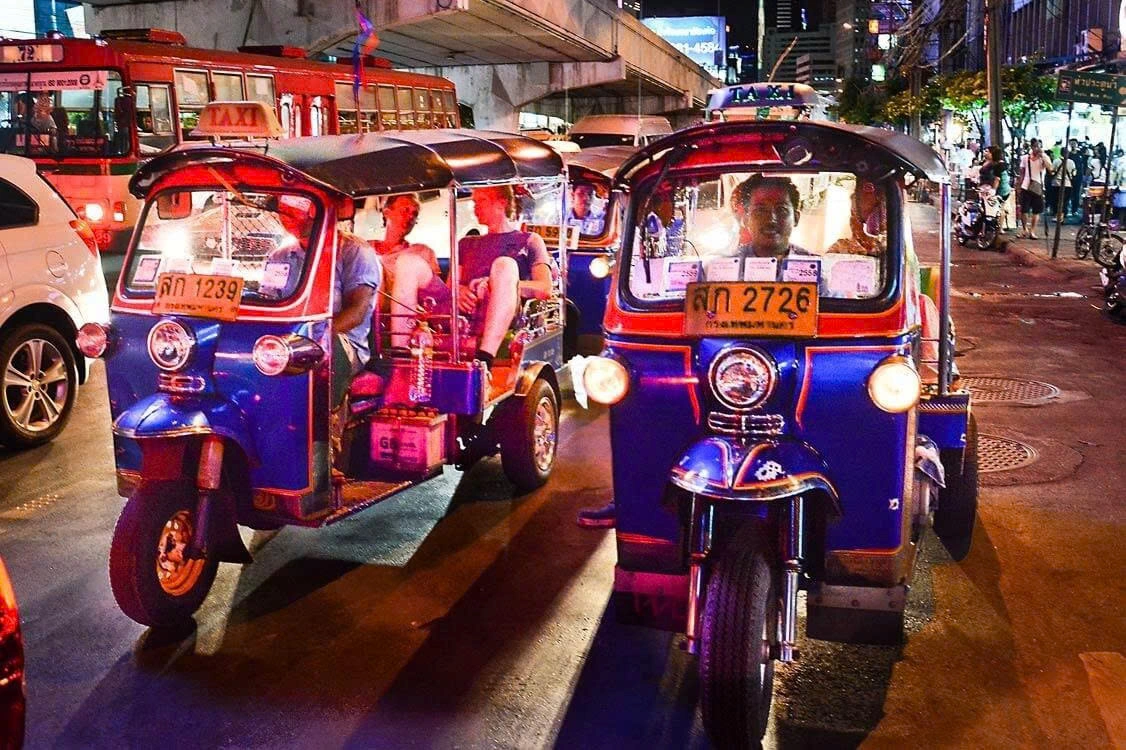
Thailand has reliable and affordable internet, making it easy for travelers to stay connected. Free Wi-Fi is common in hotels, cafés, restaurants, and even shopping malls. For more convenience, visitors can buy a local SIM card from providers like AIS, TrueMove, or DTAC at airports and 7-Eleven stores. Packages are cheap and fast, with 4G and expanding 5G coverage across the country, including many islands and rural areas. Buying a tourist SIM card on arrival is the easiest way to enjoy smooth internet access throughout your trip.
Telephone, fax, telegraph, and telex services are provided at post offices, hotels and business centers. Mobile phones are widely used. Sending postcards or parcels overseas is easy, and international delivery is generally efficient. For communication, most locals use apps like LINE, WhatsApp, and Facebook Messenger, while English is widely understood in tourist areas. International calls can be made through local SIM cards, but most travelers prefer internet-based messaging and calling for convenience.

Vietnam is a country full of history, culture, and natural beauty, offering unforgettable experiences for every type of traveler. From bustling cities and ancient temples to serene countryside and pristine beaches, there is something for everyone. With careful planning, attention to local customs, and consideration for dietary or religious needs, Israeli travelers can enjoy a safe, enriching, and memorable journey.
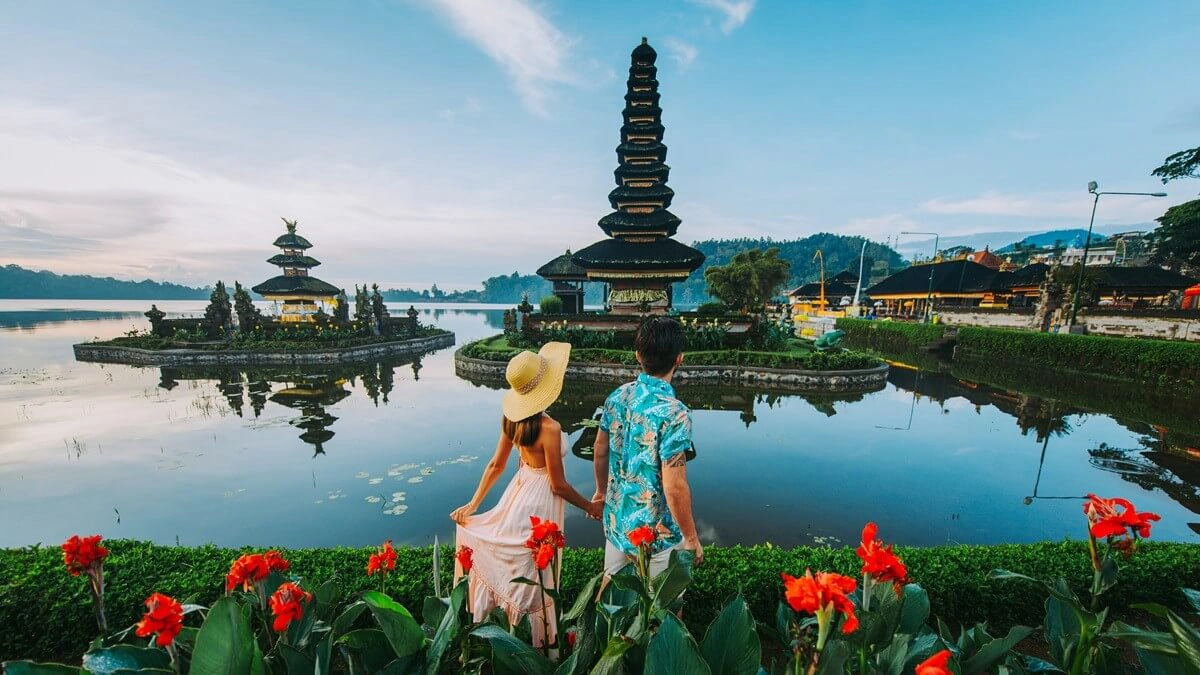
To enter Bali, travelers need a passport valid for 6 months; many nationalities get 30 days visa-free, while longer stays require a Visa on Arrival or e-visa. The island has a tropical climate with a dry season (Apr–Oct) ideal for beaches and festivals, and a wet season (Nov–Mar) with lush green landscapes. Cash in Indonesian Rupiah is essential for small expenses, though cards are accepted in larger venues, and transport mainly relies on taxis, ride-hailing apps, scooters, or private drivers. Visitors should respect local customs—dress modestly at temples, remove shoes in sacred spaces, and use the right hand when giving or receiving items.
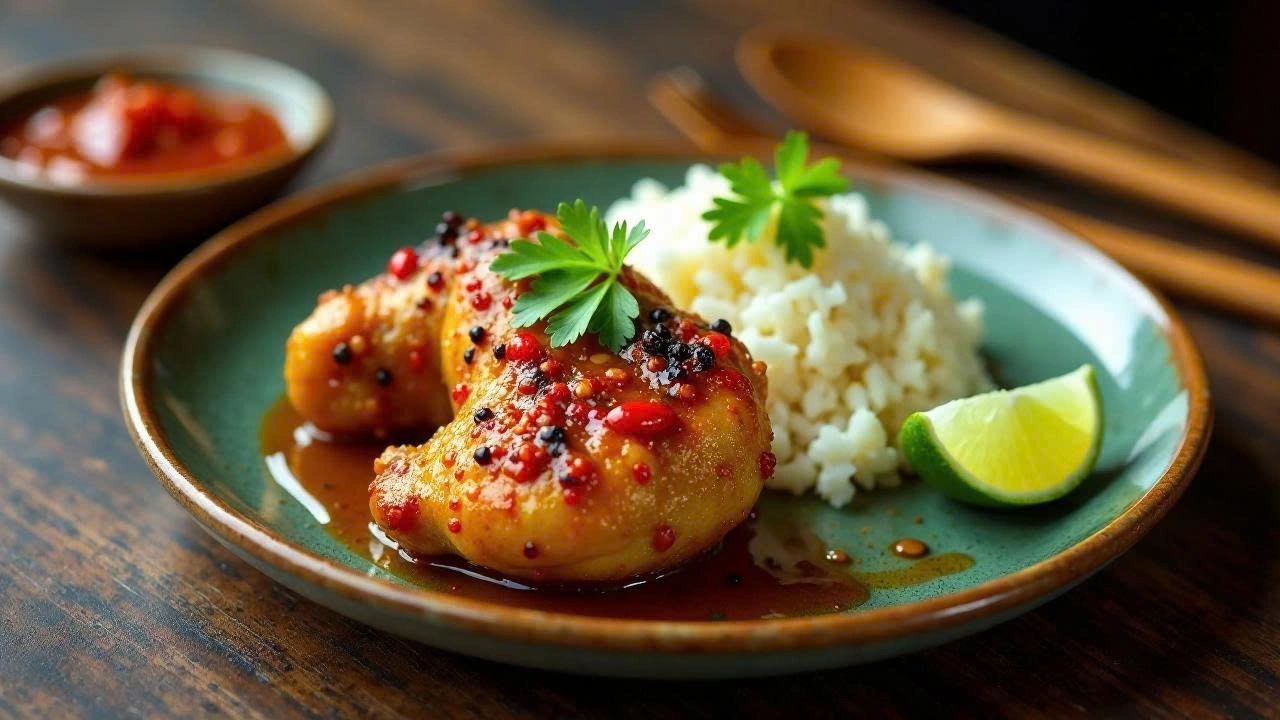
Balinese cuisine is a vibrant reflection of the island’s culture, shaped by its Hindu heritage, fertile volcanic soils, and abundant spices. Meals are a harmonious balance of flavors spicy, savory, sweet, and aromatic—brought together through fresh herbs, coconut, peanuts, and chili-based spice pastes known as bumbu. Rice is the centerpiece of most meals, complemented by grilled meats, seafood, and an array of vegetable dishes. Many recipes are deeply rooted in ceremonial traditions, often served during temple festivals and family gatherings, making Balinese food not only a culinary delight but also a cultural journey.
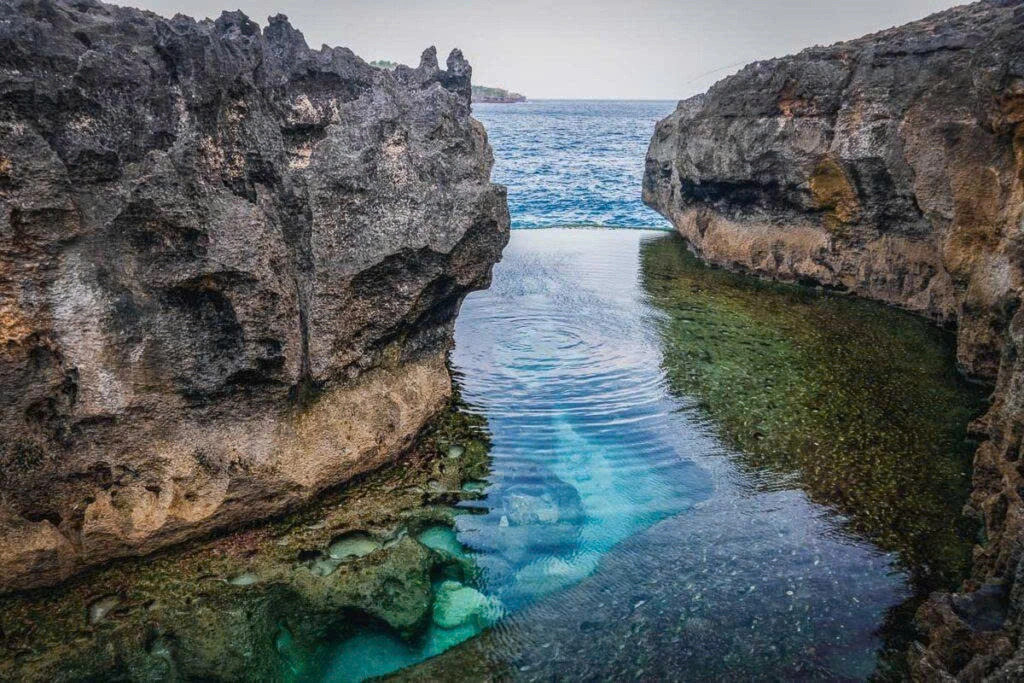
Nusa Penida is a stunning island off Bali’s southeast coast, famed for its rugged cliffs, crystal-clear waters, and dramatic landscapes. Highlights include Kelingking Beach with its dinosaur-shaped headland, Angel’s Billabong, and Broken Beach. Popular for snorkeling and diving, the island offers encounters with manta rays and vibrant coral reefs, making it a paradise for adventure and nature lovers.
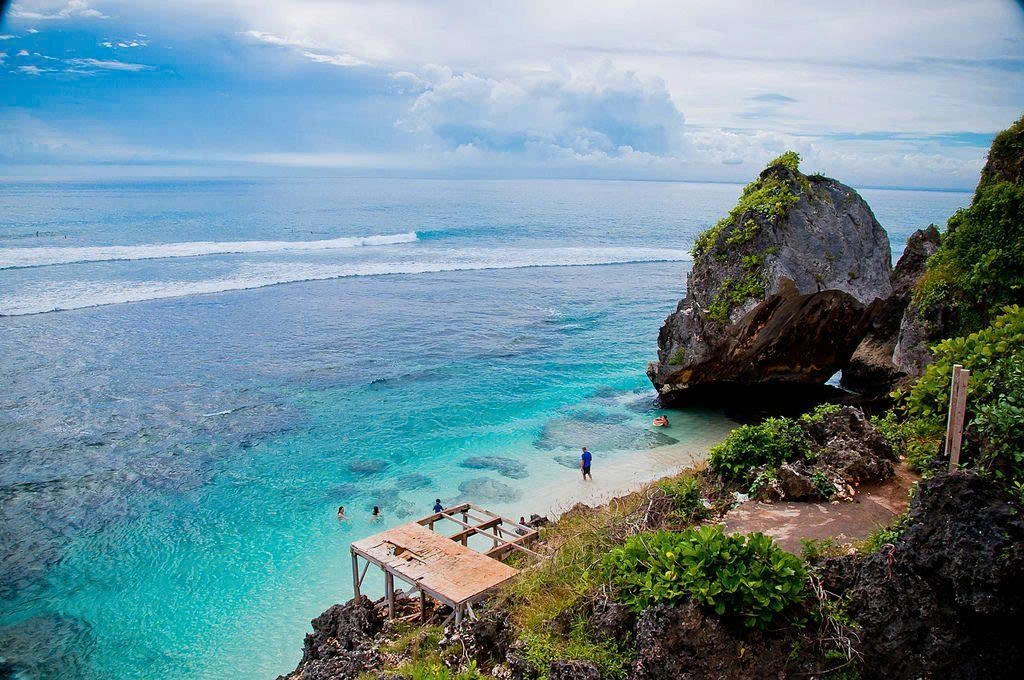
Uluwatu is renowned for its dramatic sea cliffs, world-class surf breaks, and breathtaking ocean views. At its heart lies the iconic Uluwatu Temple, perched high above the waves and famous for sunset Kecak dance performances. With luxury resorts, hidden beaches, and a relaxed coastal vibe, Uluwatu is a perfect blend of culture, adventure, and natural beauty.

Ubud is the cultural and spiritual heart of Bali, surrounded by rice terraces, lush forests, and traditional villages. Known for its art, dance, and handicrafts, it’s also a hub for yoga, wellness, and spiritual retreats. With its temples, galleries, and serene landscapes, Ubud offers a deeper connection to Balinese heritage and nature.
Preparing for your upcoming trip to Asia?
Let us know what we can arrange for you!